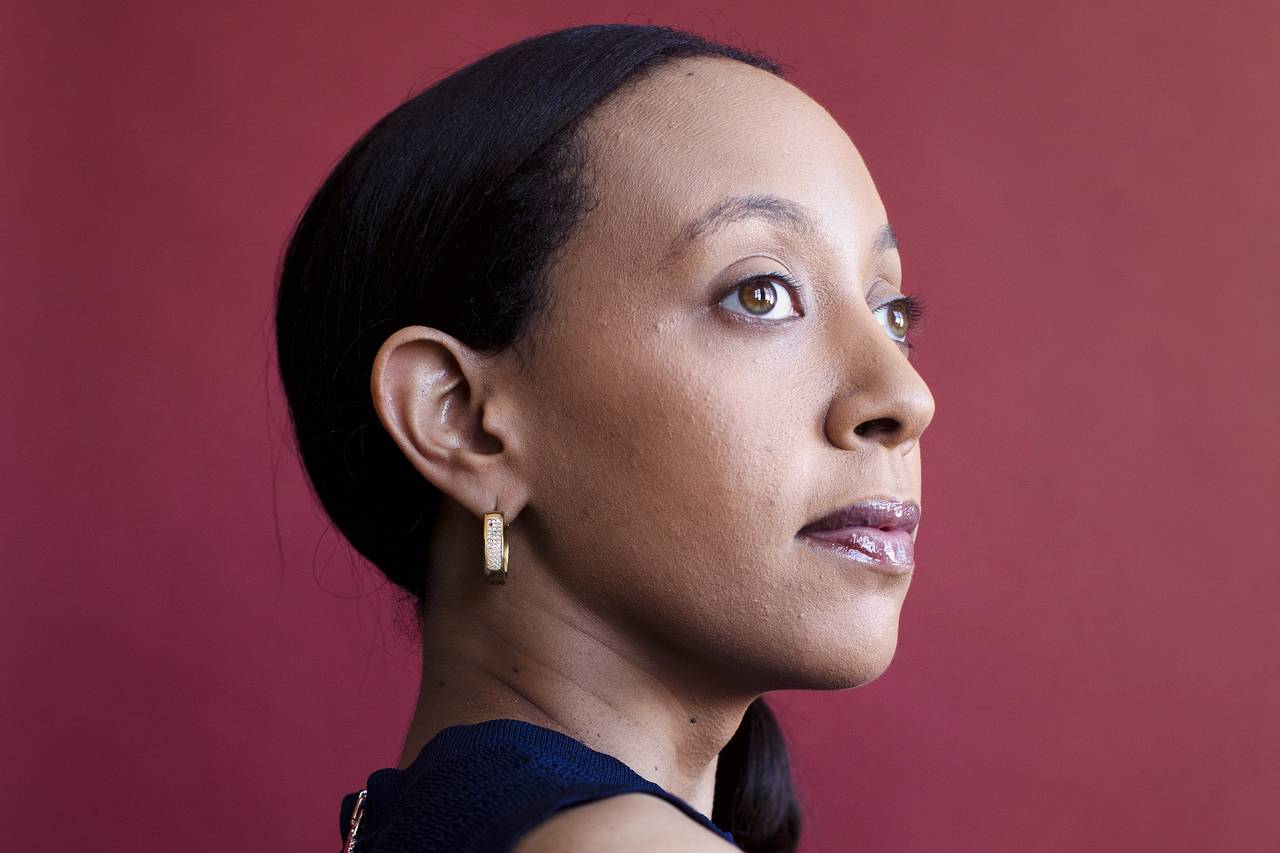The first Deafblind graduate of Harvard Law School, Haben Girma has spent her life advocating for disability justice and the importance of inclusion as a human rights lawyer. Girma is also a recipient of the Helen Keller Achievement Award and a member of the Forbes 30 Under 30 Class of 2016. Former President Barack Obama also named her a White House Champion for change. Using a braille communication system that she developed herself, Girma spoke with The Politic over text about her life, activism, and the ongoing fight against ableism.
How have your intersecting identities—being Black, a woman, deafblind, and the daughter of Eritrean refugees—informed how you think about inclusion and disability justice?
Girma: A lot of justice work started with an us vs. them mentality: oppressors vs. oppressed. But I don’t have a community where I automatically experience full access and inclusion. My life has taught me to challenge simplistic stories and lean into complexity. When us vs. them stories don’t work, then you must construct new stories.
In your memoir, you recount your father telling you as a child that your name means pride and standing up for freedom in Tigrinya. In what ways have you lived out that name? And how do you envision living out that name as you move forward in life?
Girma: We need to cultivate a sense of pride in our identities, especially those of us from underrepresented groups. Cultivating humility is important, too. I strive for both.
What has learning to take pride in your identities looked like for you? And what obstacles, if any, have you encountered in that process?
Girma: The obstacles are racism, sexism, and ableism. I am resisting those forces when I take pride in my identities.
Through your consulting work on accessibility, diversity, and leadership for organizations like the New York Times, Apple, and Oxford Law School, what have been your most important takeaways?
Girma: Society has a lot of work to do to end ableism. Ableism is the systemic practice of treating disabled people as inferior to non-disabled people.
When you introduced then-President Barack Obama and Vice President Joe Biden at the 25th Anniversary Celebration of the Americans with Disabilities Act, you remarked that “the drive for equality is not over.” In terms of combating ableism and promoting equity, where do you think our society needs to go from here?
Girma: Right the burden of fighting ableism that falls on the shoulders of disabled people. We need to radically change this system.
What kinds of policies will bring about that radical change?
Girma: That’s an excellent question! Maybe Yale students would have some ideas. When we address barriers in our own communities, we make the world at large more accessible.
Without question, the pandemic has laid bare the inequities in American society along lines of race, class, disability, and more. Particularly regarding the growing number of people with long COVID-19— now considered a disability under the ADA— how should policymakers respond?
Girma: If organizations respected the ADA, people with long Covid would receive the accommodations and support they need. The ADA’s promise of equality depends on enforcement by disabled people who already carry so much. This is why I am calling for a radical shift in addressing ableism.
Now, it’s been over 30 years since the passage of the ADA. As the fight against racism, sexism, and ableism continues, what are your hopes for the next 30 years?
Girma: Most people understand that racism and sexism are wrong, but the vast majority of people do not understand ableism. I published my book to teach more people to notice ableism in their schools and communities. I hope our future will have more people advocating to end ableism.
In this future that you envision— one in which more people work to combat ableism— what should meaningful allyship from people without disabilities look like?
Girma: Nondisabled people can show allyship by listening to disabled advocates, and through listening, become advocates themselves. We want non-disabled allies to call out ableism and address barriers without waiting for a disabled person to encounter the frustration of dealing with those barriers.
This Black History Month, as we honor the struggles and triumphs of people of African descent throughout history, how do you see yourself fitting into that long lineage of civil rights advocacy?
Girma: I feel that Black History Month events of the past have often overlooked the work of Black disabled activists. I’m hopeful that this is now changing.
Are there particular Black disabled activists that inspire you?
Girma: Did you know Harriet Tubman was disabled?
Yes, I do.*
Girma: I’m glad! There are quite a few people who don’t know.
With all of this in mind, what does activism mean to you?
Girma: Activism means using the skills, abilities, and resources you have to fight injustice. For some people, that means marching in the streets. For others, that means doing research and creating plans for change. Activists take time to think about how they can best help and then put those ideas into action.
*When Harriet Tubman was a young woman, a slave owner struck her in the head with a two-pound weight. As a result, she had what she termed “sleeping spells,” which historians believe were epileptic seizures.

